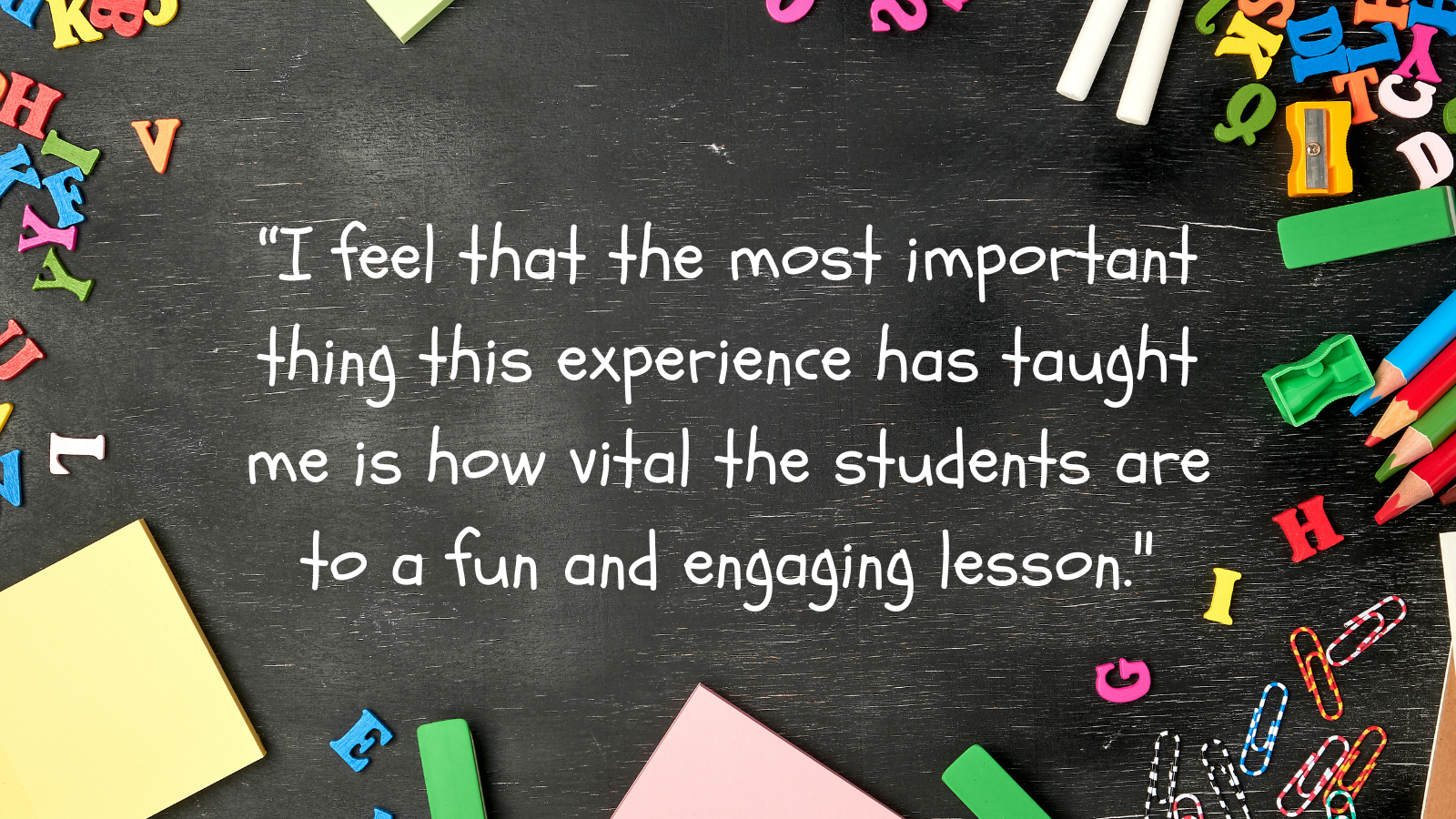Teaching Your First Lesson: What These Rutgers Alternate Route Candidates Learned

Experience is one of life’s best teachers, and our Alternate Route candidates receive no shortage of experience as they go through our program. Our courses are structured to have a focus on hands-on, real-world experience - giving our candidates a supportive space to learn, practice and improve.
Often, some of the best wisdom comes from past candidates, who offer a wealth of information based on their personal experiences going through the Alternate Route program. We value this insight and ask our candidates to share their personal insight with incoming candidates.
One question we always have them answer is “What did I learn from this experience that will help me in the future?” When we received responses from our 2021 candidates, we were amazed at the wealth of information these educators were willing to share.
To help prepare those gearing up to teach their first lesson, we’ve provided advice from the people who have been there.
Below are eight pieces of wisdom from our Alternate Route candidates.
1.

“I think that it is the students and their contributions, interests and energy that make the lesson better and make me a better teacher.”
-Matthew Barge, English as a Second Language (ESL)
2.
.png)
“Things moved a bit faster than planned and I need to anticipate changes and have insight to how long things will take. Also, I need to have a very detailed pathway that is easily visible to make sure I'm keeping everyone on track. This practice lesson was a BIG help and I found that the lesson planning and delivery sheet were much more helpful than anticipated.”
-Matthew Della Vecchi, Elementary Education
3.
.png)
“I also plan on incorporating many new engagement strategies from the readings including adding enthusiasm with fun openers, making learning fun by creating fun small group activities, creating opportunities for student participation, and creating opportunities for group learning. I think from time to time it is important to film yourself to see whether the lesson plan objectives are truly being accomplished.”
-Sara Aitken, Elementary Education
4.
.png)
“The foundational knowledge they developed in the first five minutes of the class was a great springboard for the rest of the discussion. We didn’t have to spend much time getting on the same page because students had time to catch up on foundational knowledge during the Do Now. I also learned that I am going to need to develop an excellent sense of time management if I want my lessons to be as effective as possible.”
-Samantha Franz, English
5.
.png)
“Double-checking beforehand that all of my repertoire is clearly distinguished from one another in my head would save a little bit of time and help me to be more secure in the flow of the lesson. Being mindful of visual aids in the forms of PowerPoint or Keynote presentations is another way that I can streamline the lesson delivery: they are as much an aid for the students as they are for me Also, I need to stage someplace in my house where I can teach virtually without having so much chaos in the background.”
-Teresa-Marie Gotanco, Music
6.
_0.png)
“I need to differentiate whenever there are students who need more help. I use collaborative learning to allow students to interact and I monitor their progress. This is how I can adjust my following lesson.”
-Silvia Stern, Mathematics
7.
.png)
“It is my first year really learning about how to plan. There is so much to consider when planning for the first time it seems really overwhelming. I think the best idea is to stick to a basic format and make small changes as I go when necessary. Each time I do have trouble planning I can always ask a fellow teacher or now revisit all the information we have been given in this course.”
-Andrew Tencza, High School
8.
.png)
“I over-planned for this period but I think I would rather err on the side of over-planning. Still having the expectations that we would get through four activities created a little anxiety for me and made me feel rushed, so I think in the future I might just drill down on fewer activities so that we can all take our time and enjoy what we're doing!”
-Shannon Vasile, Elementary School
If you’re considering following your dream of teaching, Rutgers Alternate Route can offer you the support and training you need to succeed. Be sure to follow Rutgers Alternate Route on Twitter and sign up for Alternate Route’s monthly newsletter for more information and stories from the field of education.

 Heather Ngoma has over 25 years of experience collaborating with educators across New Jersey to drive education innovation. She currently serves as the Director of the Rutgers-GSE Alternate Route Program in the Department of Learning and Teaching, a program which helps career changers, recent college graduates, and other aspiring education professionals become licensed teachers in New Jersey. Follow her on Twitter @heatherngoma.
Heather Ngoma has over 25 years of experience collaborating with educators across New Jersey to drive education innovation. She currently serves as the Director of the Rutgers-GSE Alternate Route Program in the Department of Learning and Teaching, a program which helps career changers, recent college graduates, and other aspiring education professionals become licensed teachers in New Jersey. Follow her on Twitter @heatherngoma.





